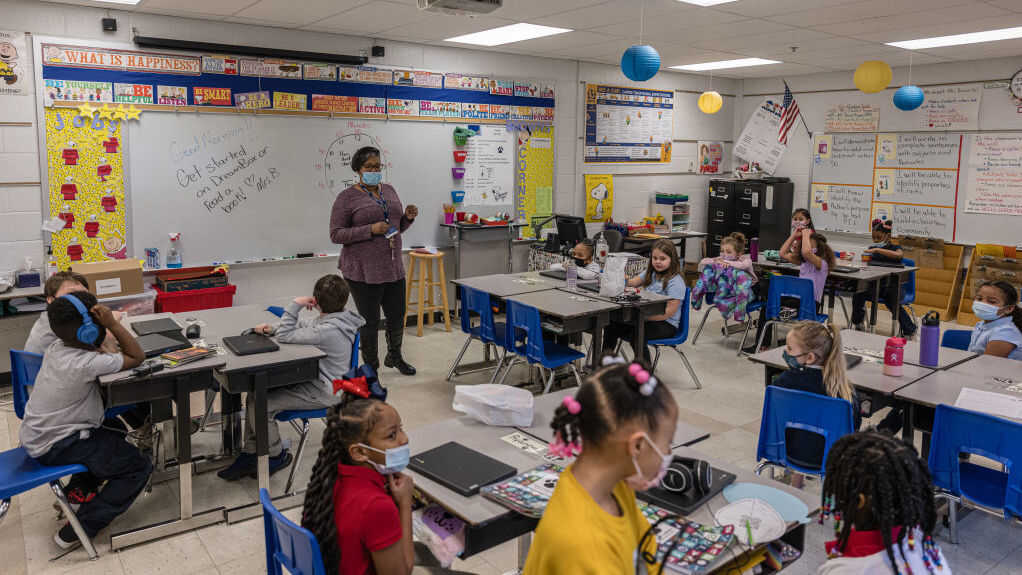
Teachers across the country report high levels of stress and burnout after a school year marked by protests, Covid surges and gun violence. (Photo by Jon Cherry/Getty Images) Jon Cherry/Getty Images hide caption

Teachers across the country report high levels of stress and burnout after a school year marked by protests, Covid surges and gun violence. (Photo by Jon Cherry/Getty Images)
Jon Cherry/Getty ImagesAfter two years of pandemic disruptions, this school year was supposed to be better. But for many teachers, it was harder than ever.
Teachers say they are stressed and burned out. Many are considering leaving their jobs sooner than planned.
We speak to three teachers about the past school year and their concerns about the future.
Email us at
This episode was produced by Gabe O'Connor and Ayen Bior. It was edited by Bridget Kelley and Courtney Dorning. Our executive producer is Sami Yenigun.

 Live Radio
Live Radio